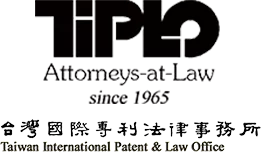State-owned Enterprises’ Names Popular Company Names to Use? Business Owners Must Exercise Care to Avoid Being Sued for Trademark Infringement.
E060919Y2・E060911Y2 Oct. 2006(E83)
Problems arise from time to time when a private business uses a well-known state-owned enterprise’s names as its registered company name. TIPO said state-owned enterprises’ names are recognized famous trade names owed to their long standing and being well known to the general public and any person using the name of any such state-owned enterprise without prior consent could be held in violation of the trademark right of the state-owned business concerned.
The registrar of company registration is the Department of Commerce, Ministry of Economic Affairs (DOC) and the registrar of trademark registration is TIPO. The DOC focuses on the designated business items when examining company registration applications. For example, Taiwan Sugar Corporation’s registered business is the manufacture and sale of sugar products. Tai-Sugar Re-housing Service’s registered business is the real estate agency service. As both entities’ business items are different, the DOC will approve Tai-sugar Re-housing Service’s company registration. Private businesses normally believe they are entitled to use their registered company names because the DOC, the company registrar said okay to their company applications. However, they failed to consider the issue of misusing another’s registered trademark or famous mark and such failure could entangle them in a trademark infringement claim.
According to Article 62 of the Trademark Act, any person who knowingly uses a mark identical with or similar to a well-known registered mark of another person as its company name, trade name or domain name without the well known mark holder’s prior consent and hence causes dilution of the distinctiveness or reputation of the well-known mark or consumer confusion will be held in violation of the trademark right in the well-known mark.
According to the relevant court judgments, TIPO found that the higher the fame of the well known mark in issue, the more likely the defendant will be considered having held the intent to misuse the mark. In the civil aspect of such case, the defendant will be held liable for negligence for failing to exercise due care to conduct a preliminary trademark search. However, if the well known mark in issue as shown on the packaging of the product cannot be recognized at sight as a trademark, the defendant may be free from being held as being willful to misuse the mark.
Absent legal definition of the elements of willfulness in respect of trademark infringement, there have been diverse opinions held in practice. Violations of the Trademark Act normally involve criminal and civil issues. TIPO will discuss with the Judicial Yuan to decide the direction of the necessary amendment to minimize trademark disputes arising from misuse of state-own enterprises’ company names. (2006.9)
/EMA














